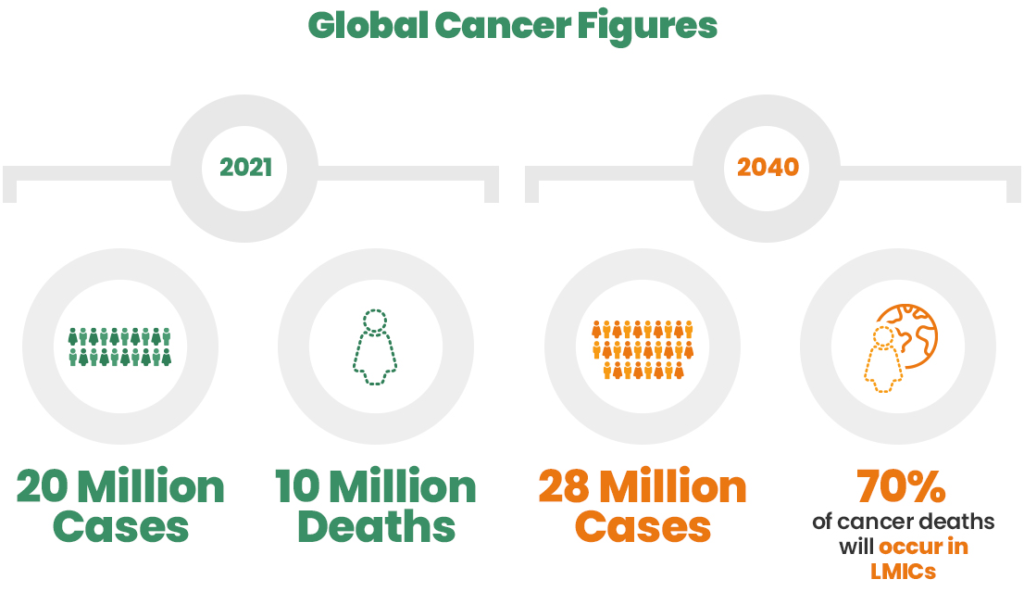Cancer Facts
A growing cancer burden
Cancer is a leading cause of death worldwide, accounting for 10 million deaths in 2021, nearly one in six deaths. Cancer-causing infections, such as human papillomavirus (HPV) and hepatitis, are responsible for approximately 30% of cancer cases in low- and middle-income countries (LMICs). The COVID-19 pandemic has exacerbated weaknesses in health systems, and many countries report that cancer screening and treatment have been partially or completely disrupted since 2020.
Access to treatment
Many cancers can be cured if detected early and treated effectively but cancer care reflects the inequalities of our world. Treatment is available in more than 90% of high-income countries but in less than 15% of low-income countries.
Despite being a critical component of cancer treatment, access to radiotherapy is still inadequate, particularly in low-income countries. The situation is particularly acute in Africa where nearly 70% of the countries report not having access to radiotherapy.
Access to healthcare professionals plays a crucial role in enhancing public awareness of cancer prevention. By ensuring that individuals have regular interactions with knowledgeable health staff, we can significantly improve early detection and preventive measures.
Cervical cancer
In sub-Saharan Africa, 110 300 cases of cervical cancer have been reported in 2020. It still ranks as a leading cause of cancer death in women, although it can be prevented, treated and cured through vaccination and early treatment. Few diseases reflect global inequities as much as cancer of the cervix. Nearly 90% of the deaths occur in low- and middle-income countries.
In August 2020, the World Health Assembly adopted the Global Strategy for cervical cancer elimination. In this context, the Elekta Foundation is developing partnerships and programs to participate to the elimination of this life-threatening cancer in Africa and beyond, where the burden of cervical cancer is the greatest. One of the objectives is to improve access to public health services and implement early screening and treatment. Radiotherapy techniques such as brachytherapy are also very effective to treat early-stage patients. Please see our campaign on cervical cancer in Rwanda.


Source: WHO | Learn more about the Global Cervical Cancer Elimination Initiative
Breast cancer
Breast cancer is a significant health issue all over the world. In Africa, it is the second leading cause of cancer-related deaths among women. According to the World Health Organization (WHO), breast cancer, along with cervical cancer, represents a substantial portion of the cancer burden in the African region. The survival rates for breast cancer five years after diagnosis are alarmingly low, standing at around 40% in sub-Saharan Africa compared to over 90% in most high-income countries.
Efforts to address these disparities include improving access to early detection, treatment, and raising public awareness about the importance of regular screenings.

Source: WHO | Learn more about Breast Cancer



